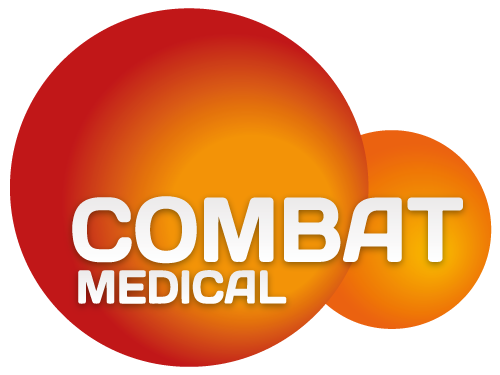In recent years, the potential role of vitamin D in preventing and treating colorectal cancer (CRC) has attracted increasing attention within the medical community. And now, a comprehensive 2025 review published in Nutrients by Fekete et al.* suggests that this humble vitamin may very well play a major role in helping to fight this disease. The researchers drew their conclusions from a literature review in PubMed, Web of Science and Scopus databases, which included 50 clinically relevant cohort studies comprising over 1.3 million participants. For medical professionals, this presents a valuable opportunity to explore how a readily accessible nutrient could serve as a vital element in reducing CRC incidence and improving patient outcomes.
Vitamin D and Colorectal Cancer Studies from the Past
The foundation of this association dates back to the seminal work by Garland et al. in 1989, which first highlighted the correlation between lower sunlight exposure (and consequently lower vitamin D synthesis) and higher colorectal cancer mortality. Since then, a multitude of epidemiological studies have continued to validate this finding, reinforcing the protective role of adequate vitamin D levels in CRC.
The 2023 meta-analysis highlighted in Fekete et al.’s review provides robust statistical support. In case-control studies, individuals with higher serum vitamin D levels exhibited a 39% reduction in CRC risk, while prospective cohort studies noted a 20% decrease. These findings are particularly striking given the broad participant base, and reinforce the urgency of addressing widespread vitamin D deficiency.
The Scope of Vitamin D Deficiency and CRC Risk
In the United States, vitamin D deficiency is alarmingly prevalent. Approximately 35% of adults are deficient, a figure that surges to 50–60% among hospitalised patients and residents in long-term care facilities. Obesity compounds this risk, with affected individuals exhibiting a 35% higher likelihood of deficiency. Given the well-documented association between obesity and colorectal cancer, the added complication of vitamin D deficiency in this demographic is particularly concerning.
From a clinical standpoint, these statistics should prompt healthcare providers to consider routine screening for vitamin D levels, especially in high-risk populations, including older adults, individuals with obesity, and those with limited sun exposure. That obviously includes everyone in the UK!
How Does Vitamin D Counter Colorectal Carcinogenesis?
Vitamin D’s role in CRC prevention lies in its multifaceted anti-tumour mechanisms. The biologically active form, calcitriol (1,25-dihydroxyvitamin D), exerts numerous protective effects on cellular processes that are dysregulated in colorectal cancer.
Anti-tumour mechanisms of vitamin D in CRC include:
1) Inhibition of Cancer Cell Growth:
Calcitriol induces G1 phase cell cycle arrest in CRC cells, directly impeding their ability to proliferate. Additionally, it restores cellular sensitivity to tumour suppressors such as transforming growth factor-beta (TGF-β), thereby reinstating critical regulatory pathways often disrupted in malignant cells.
2) Regulation of the Wnt/β-Catenin pathway, which is frequently hyperactivated in CRC:
The Wnt/β-catenin signalling pathway, commonly hyperactivated in colorectal tumours, plays a central role in promoting unchecked cell division and tumour progression. Calcitriol counteracts this by downregulating β-catenin and upregulating E-cadherin, a protein vital for maintaining cellular adhesion. This dual action helps stabilise cellular architecture and diminishes tumour invasiveness.
3) Anti-Angiogenic Activity:
Tumour growth and metastasis are heavily reliant on angiogenesis. Calcitriol disrupts this process by suppressing vascular endothelial growth factor (VEGF) and the pro-inflammatory nuclear factor kappa-light-chain-enhancer of activated B cells (NF-κB) pathway, thereby starving the tumour of its blood supply.
4) Induction of Apoptosis:
Programmed cell death, or apoptosis, is a vital mechanism for eliminating abnormal cells. Calcitriol promotes apoptosis by upregulating pro-apoptotic proteins like BAX and BAK while downregulating anti-apoptotic factors such as BCL-2. This shift in the apoptotic balance favours the elimination of CRC cells.
5) Anti-Inflammatory Properties:
Chronic inflammation is a well-established risk factor in colorectal carcinogenesis. Calcitriol mitigates this by inhibiting the synthesis of prostaglandins, downregulating stress-activated kinases, and reducing the expression of pro-inflammatory cytokines. These actions collectively create a less favourable environment for tumour development and progression.
Prevention and Beyond
For healthcare providers, the implications are twofold: prevention and potential adjuvant treatment. Monitoring serum 25(OH)D levels and correcting deficiencies – especially in high-risk groups – could form the foundation of colorectal cancer prevention strategies. Vitamin D supplementation could also be implemented as an adjunct in CRC treatment regimens, though this area warrants further clinical trials to optimise dosing, duration, and patient selection.
Most importantly, vitamin D’s safety profile, cost-effectiveness, and broad availability make it an appealing option for both public health initiatives and individuals looking to improve their health and hopefully prevent deadly diseases.
*Fekete et al. Vitamin D and colorectal cancer prevention: immunological mechanisms, inflammatory pathways, and nutritional implications. Nutrients. 2025; 17(8):1351

